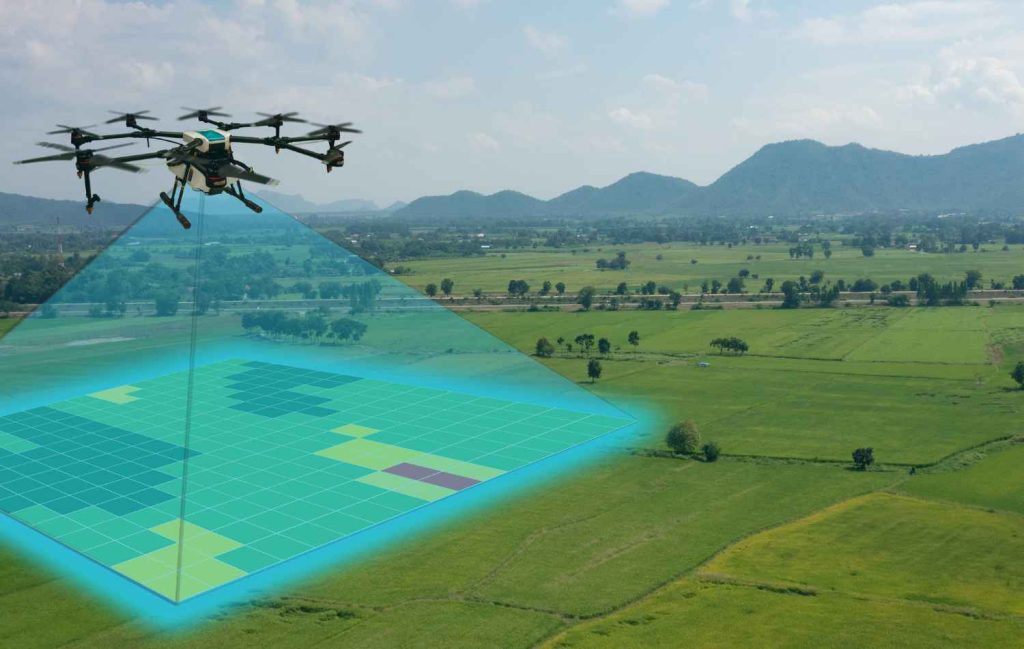
Hello! If you're involved in drone operations, you know how crucial efficiency and safety are. Drone docking stations are game-changers in this field. They automate many of the manual tasks associated with drone management, making your operations smoother and more reliable. But what exactly are these docking stations, and how do they benefit your drone program? In this article, we'll dive into the main advantages of drone docking stations, focusing on efficiency, safety, autonomy, and extended flight time. Let's explore how these innovative systems can elevate your drone operations to the next level.
What Are Drone Docking Stations?
Drone docking stations are specialized platforms designed to automate the maintenance and operational readiness of drones. Imagine a parking spot for your drone where it can land, recharge its battery, and get ready for the next mission—all without any human intervention. These stations are equipped with advanced technology that allows drones to autonomously land, swap or recharge batteries, and even perform system checks.
The concept is simple: keep your drones in the air longer and reduce the downtime usually associated with manual battery changes and system maintenance. Companies like —— are pioneering these solutions, providing versatile docking stations that can be integrated into various environments, from urban areas to remote locations. These stations are crucial for industries that rely on continuous drone operations, such as surveillance, delivery, and environmental monitoring. By automating routine tasks, drone docking stations significantly enhance the efficiency and reliability of drone fleets.
How Do Drone Docking Stations Enhance Efficiency?
Drone docking stations revolutionize the way drones operate by significantly enhancing their efficiency. One of the primary benefits is the automation of battery swapping. Instead of manually changing batteries, which can be time-consuming and prone to errors, drones can autonomously dock and recharge. This process reduces downtime, allowing drones to get back in the air faster and complete more tasks in less time.
Additionally, docking stations streamline maintenance routines. Automated systems can perform quick diagnostics and minor maintenance checks, ensuring that drones are always in optimal condition. This reduces the need for frequent manual inspections and repairs, saving both time and resources.
Furthermore, docking stations facilitate seamless data transfer. When drones dock, they can automatically upload collected data to central systems. This means that data can be analyzed and acted upon in real-time, enhancing the overall responsiveness and productivity of operations.
By integrating advanced technology, such as the systems developed by ——–, docking stations ensure that drones are always ready for the next mission. This continuous readiness boosts operational efficiency, making it easier for organizations to manage large fleets of drones and achieve their objectives with minimal interruption.
What Safety Benefits Do Drone Docking Stations Offer?
Drone docking stations offer a host of safety benefits that can make a big difference in your drone operations. First off, they provide a controlled environment for drones to land and recharge, significantly reducing the risk of accidents during manual handling. When a drone lands in a docking station, it follows a precise, automated process, ensuring smooth and safe landings every time.
Another key safety feature is the ability to abort missions automatically in adverse weather conditions. This means your drones won't be caught in sudden rain or high winds, which could potentially lead to crashes or damage. The docking station monitors environmental conditions and makes real-time decisions to keep your equipment safe.
Moreover, drone docking stations enhance safety by minimizing human intervention. Since the entire battery swapping and charging process is automated, there's no need for your team to handle potentially hazardous battery changes. This reduces the risk of injuries and accidents associated with manual operations.
Lastly, the autonomy provided by these stations means drones can operate in hazardous or remote environments without putting human operators at risk. Whether it's a high-risk inspection or a surveillance mission, the safety benefits of drone docking stations, like those from ——–, are invaluable.
In What Ways Do Drone Docking Stations Provide Autonomy?
Drone docking stations bring a whole new level of autonomy to your drone operations. Imagine your drones flying missions without you having to lift a finger. With these stations, that's exactly what happens. They enable your drones to recharge, swap batteries, and even perform maintenance checks all on their own.
This hands-free approach is a game-changer, especially for long-duration tasks like surveillance or environmental monitoring. Your drones can operate independently, covering vast areas without needing to return to base for manual battery changes. This means fewer interruptions and more consistent data collection.
Moreover, the docking stations are equipped with advanced systems that allow drones to land and take off accurately, even in less-than-ideal conditions. This precision ensures that your drones are always ready for the next mission, reducing downtime significantly.
By integrating with existing software and operational platforms, these stations also streamline data transfer and mission planning. Your drones can automatically upload collected data, receive new instructions, and head out for the next task without human intervention. This level of autonomy not only enhances efficiency but also frees up your time to focus on more strategic aspects of your operations.
In short, drone docking stations turn your drone fleet into a fully autonomous workforce, maximizing productivity and minimizing the need for manual oversight.
How Do Drone Docking Stations Extend Flight Time?
Drone docking stations are a game-changer when it comes to extending your drone's flight time. These stations automate the battery swapping process, ensuring your drones spend more time in the air and less time on the ground. By efficiently managing battery recharges, drones can complete longer missions without the frequent interruptions for manual battery changes.
One of the key features of these stations is their ability to quickly recharge or swap out batteries. This means drones can land, recharge, and take off again without any human intervention. This continuous operation maximizes the drone's usage and minimizes downtime, allowing for extended periods of flight.
Furthermore, the —— docking solutions incorporate advanced technology to monitor battery health and performance. This ensures that drones are always equipped with fully charged and well-maintained batteries, optimizing their flight capabilities.
By integrating drone docking stations into your operations, you can significantly enhance your drone's efficiency and productivity. This setup not only extends the flight time but also streamlines the entire process, making it more reliable and effective for various applications, from surveillance to delivery.
Drone Docking: The Future of Flight
Drone docking stations offer remarkable advantages for modern drone operations. They significantly boost efficiency by automating tasks like battery swapping, ensuring drones spend more time in the air and less on the ground. Safety is enhanced with controlled environments for landing and recharging, minimizing risks. Autonomy allows drones to operate independently, perfect for long missions. Extended flight times mean drones can cover larger areas and complete complex tasks seamlessly. With these benefits, integrating docking stations into your drone program can transform and elevate your operations.
